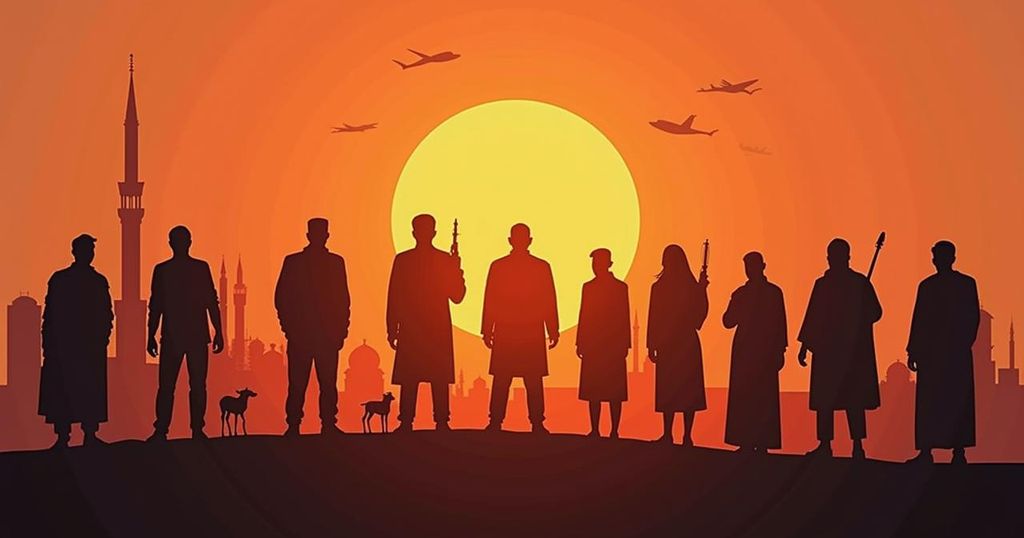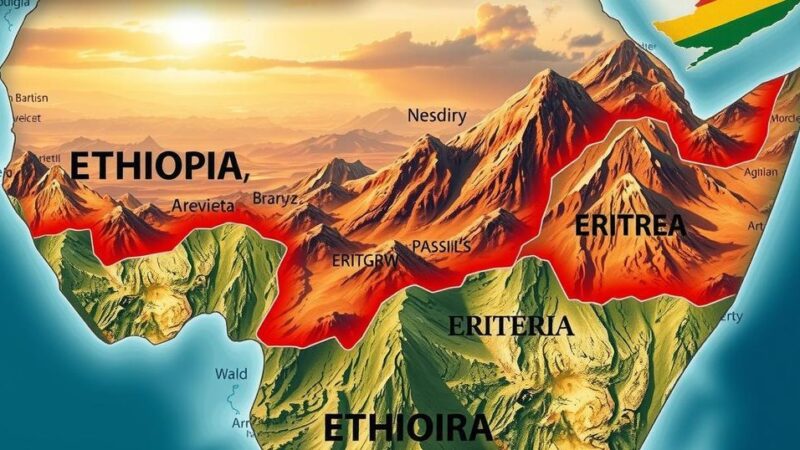In the wake of a ground invasion of southern Lebanon by Israel and intensified hostilities in Gaza, the risk of a wider Middle Eastern conflict escalates. Analysts highlight Israel’s shifting military goals against Hezbollah, Iran’s declining influence, and the challenges of achieving peace amid growing animosity towards Israel. The potential impact of future U.S. elections on Israeli military operations and pathways to de-escalation are also critically examined.
The ongoing conflict in the Middle East, particularly following Israel’s recent military actions in southern Lebanon and the continuous war in Gaza, raises pressing questions about future developments and regional stability. Experts have been consulted to share their analysis on several critical aspects of the situation. Israel’s long-term objectives appear to extend beyond merely weakening Hezbollah to potentially neutralizing its influence altogether, suggesting a broader military strategy amid an unstable geopolitical environment. While the war in Gaza has severely impacted Hezbollah’s capabilities, experts caution that Israel’s military operations have yet to yield a permanent resolution to the conflict. Many believe that the current military approach might not suffice to eliminate Hezbollah’s role or the broader threats posed by Iranian influence in the region. Furthermore, military action has heightened tensions, generating increased animosity among Arab populations sympathetic to the Palestinian cause, thereby complicating future peace prospects. The balance of power in the Middle East is perceived to be shifting, potentially diminishing Iran’s influence. However, this is uncertain and may take considerable time to fully materialize. Iran’s ambitions concerning nuclear capabilities have also been scrutinized, particularly in the context of its diminishing military deterrents following the recent escalations in conflict. Given the Iranian regime’s longstanding antipathy toward Israel, the development of nuclear weapons remains a significant concern for Israeli security. On the political front, it is posited that whichever candidate wins the upcoming U.S. elections could play a pivotal role in influencing Israeli military operations; however, the existing political constraints and divergent views within the American political landscape make it unlikely that significant alterations in approach would occur without considerable political risk. Furthermore, potential pathways to de-escalation appear limited, with experts expressing skepticism about the prospects for diplomatic resolutions amidst ongoing military momentum.
The Middle East has historically been a region of intense conflict, often centered around territorial disputes, national sovereignty, and ideological divides between various groups and states. Recent events, specifically the ongoing hostilities involving Israel, Gaza, and Lebanon, have reignited fears of a broader regional war. As key players reassess their positions, the dynamics of power, military capability, and intrinsic motivations increasingly shape the geopolitical landscape. Experts are focusing on the implications of these conflicts for future relations, particularly concerning Iran’s influence and nuclear ambitions, alongside the prospects of peace in a region embattled by historical grievances.
The current conflict in the Middle East indicates a precarious balance of power, with potential long-term consequences for regional stability. Israel’s military objectives are evolving against a backdrop of Iranian influence and nuclear aspirations, while widespread dissent among the population complicates future peace initiatives. Ultimately, reaching a diplomatic resolution remains critical, yet increasingly arduous given the current momentum of military actions.
Original Source: www.bbc.com






